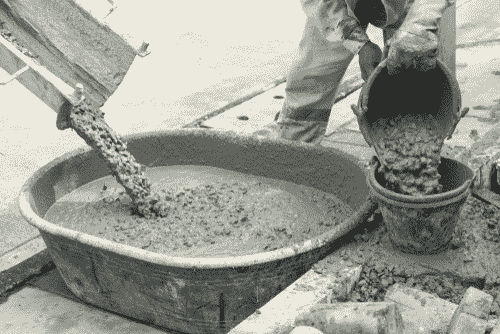Revealing the Eco-Friendly Advantages of Making Use Of Recycled Concrete in Lasting Building And Construction Practices
In the world of sustainable construction methods, the usage of recycled concrete stands as an essential yet often undervalued resource. Beyond its conventional applications, recycled concrete deals a myriad of green benefits that expand far beyond the confines of standard construction products.
Ecological Advantages
By integrating recycled concrete into construction practices, there is a substantial reduction in the demand for new raw products, leading to preservation of natural resources. In addition, the usage of recycled concrete decreases the amount of waste being sent out to landfills, therefore decreasing environmental air pollution and easing the stress on landfill capabilities (Concrete).

In contrast, recycled concrete has a lower carbon impact as it minimizes the need for new concrete production. Overall, the ecological benefits of utilizing recycled concrete are substantial and play a vital function in advertising environmentally friendly building approaches.
Cost-Efficiency
When evaluating the application of recycled concrete in building jobs,Achieving cost-efficiency is a vital factor to consider. Among the key benefits of making use of recycled concrete is its cost-effectiveness contrasted to standard concrete. The production of recycled concrete entails less energy and resources as it uses existing materials, minimizing the general project prices considerably. Furthermore, the schedule of recycled concrete locally can even more reduce transportation expenses, making it a more economical selection for building and construction projects.
In addition, making use of recycled concrete can lead to savings in land fill costs by diverting concrete waste from disposal websites. This not only reduces the environmental influence however likewise gets rid of the costs related to waste removal. The toughness and efficiency of recycled concrete are equivalent to traditional concrete, guaranteeing that expense financial savings do not endanger the top quality of the building and construction.
Durability and Stamina
Recycled concrete deals similar, if not exceptional, toughness and toughness residential or commercial properties to conventional concrete - Concrete. With improvements in processing techniques and quality control, recycled concrete can fulfill or exceed the efficiency criteria of conventional concrete.
:max_bytes(150000):strip_icc()/pouring-concrete-slab-5025127_Hero-347297eb7a1f436691f9a1f22b6e1833.jpg)
Waste Reduction
Effective waste decrease methods play a critical function in the lasting usage of sources within the building and construction sector. When it concerns using recycled concrete, waste reduction is a key benefit that adds dramatically to environmental conservation. Standard construction techniques typically produce significant quantities of waste, especially in the kind of concrete debris from demolition sites. By incorporating recycled concrete into construction tasks, this waste is repurposed and diverted from landfills, minimizing the general ecological impact of building tasks.
In addition, the usage of recycled concrete can lead to cost financial savings for building and construction tasks, as it is frequently much more budget-friendly than sourcing and transporting brand-new materials - Concrete. In conclusion, waste decrease through the application of recycled concrete is an essential part of sustainable building and construction techniques that profits both the environment and the building and construction sector as a whole.
Energy Conservation
Power conservation is a crucial aspect of sustainable building techniques, intending to minimize the general power consumption connected with building procedures and products production. When it concerns utilizing recycled concrete in building, substantial energy savings are achieved contrasted to traditional concrete production. The process of producing recycled concrete involves reusing and crushing existing concrete products, which takes this article in less power than mining, handling, and transferring basic materials for brand-new concrete manufacturing. In addition, making use of recycled concrete can assist reduce the demand for virgin aggregate, more lowering the energy-intensive removal and processing of all-natural resources.
Verdict
To conclude, from this source the utilization of recycled concrete in sustainable construction techniques uses various environmental benefits, cost-efficiency, resilience, strength, waste decrease, and power conservation. By integrating recycled concrete into construction projects, we can add to a much more eco-friendly and lasting future. It is essential for the building industry to focus on the usage of recycled materials to help in reducing the ecological influence of construction activities.
One of the vital benefits of using recycled concrete is its cost-effectiveness contrasted to typical concrete.Additionally, the usage of recycled concrete can lead to financial savings in garbage dump costs by diverting concrete waste from disposal sites. The sturdiness and efficiency of recycled concrete are similar to traditional concrete, ensuring that cost financial savings do not endanger the quality of the building and construction.
